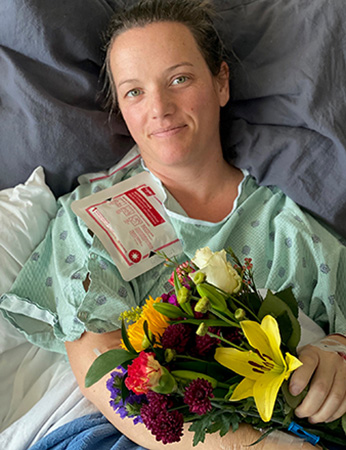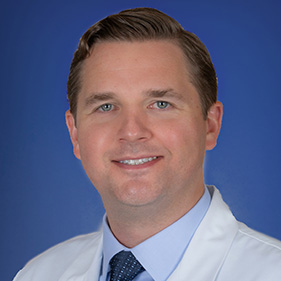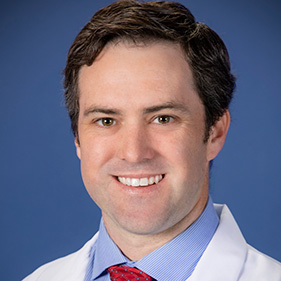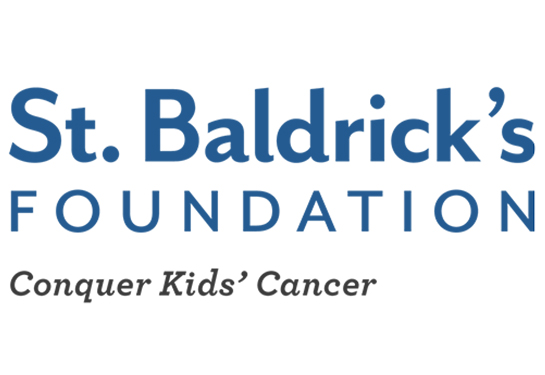Under 50? Don’t ignore Colorectal Cancer Awareness Month
Cancer center urges early screening as colon cancer rates rise in younger adults; one mom in her 30s was surprised when she was diagnosed
March is Colorectal Cancer Awareness Month and there’s good and bad news when it comes to the third most common cancer diagnosed in the U.S. Overall, the rate of colon or rectal (colorectal) cancer has steadily decreased over the past couple of decades — except for younger adults.
In fact, according to a new American Cancer Society (ACS) study, the number of people under 55 newly diagnosed with colorectal cancer has nearly doubled since 1995 despite this age group shrinking in the overall population by more than 10%.
That’s why both ACS and the U.S. Preventive Services Task Force have issued new recommendations for people at average risk of colorectal cancer to start regular screening at age 45. This can be done either with a sensitive test that looks for signs of cancer in a person’s stool (a stool-based test), or with an exam that looks at the colon and rectum called a colonoscopy. Individuals with a family history of colorectal cancer may need to undergo screening at age 40 or even earlier.
Screening early is key to successful treatment
During Colorectal Cancer Awareness Month, UC Davis Comprehensive Cancer Center is urging people who may have delayed colonoscopies during the pandemic to get their screenings back on track. The best way to treat colorectal cancer is to catch it early.
“Fortunately, the new screening guidelines and the wide adoption of colonoscopies is saving lives,” UC Davis colorectal surgeon Erik Noren said. “We are more successful than ever at treating colorectal cancer both as a result of advances in treatment and because we are finding it when it is at an earlier stage.”
Fortunately, the new screening guidelines and the wide adoption of colonoscopies is saving lives.”—Erik Noren, UC Davis colorectal surgeon
Why are younger adults getting more colorectal cancer?
Noren said numerous factors add to the rise of colorectal cancer in the under 50 age group. Genetics plays a role for some patients. Diet could be a factor — due to the amount of processed food consumed and the tempting low-fiber, high-fat meals readily available. However, chemicals in the environment could also be a cause. More research is needed to see what is driving the spike in colorectal cancer rates in young adults, he said.
“We are unsure what specifically is causing more younger adults to get colorectal cancer, but I can tell you that the number of patients I’m seeing under the age of 50 is certainly increasing,” Noren said. “We’re even seeing some patients under the age of 40.”
Proof that colon cancer can strike early
Recently, Noren performed a colorectal cancer surgery on a 37-year-old mother of three from the Shasta County town of Cottonwood who was shocked when she received her diagnosis.

“Never in a million years did I think I would face colon cancer at my age,” Alisha Knudsen said. “There is no colon cancer in my family. I’m otherwise healthy and don’t eat junk food.”
Knudsen’s husband, a local pastor, rushed her to their local hospital in pain last year. When she was discharged without a firm diagnosis, her sister, a UC Davis Health nurse, urged her to get a colonoscopy at a clinic in Redding.
“Because of my young age, the gastroenterologist questioned why I was getting the screening,” Knudsen said. “He quickly changed his opinion when he was unable to complete the colonoscopy due to the discovery of a large tumor.”
Knudsen was diagnosed with stage IIIA colon cancer and underwent emergency surgery at UC Davis the following week.
“This is not the path I’ve chosen, but it is the path I’m on,” she said. She explained that she hoped telling her story encourages others to get checked, if they have symptoms.
What are the symptoms of colorectal cancer?
- A change in bowel habits
- A feeling that you need to have a bowel movement that's not relieved by having one
- Rectal bleeding with bright red blood
- Blood in the stool, which might make the stool look dark brown or black
- Cramping or abdominal pain
- Weakness and fatigue
UC Davis colorectal surgery team
Noren, along with fellow surgeon Sean Flynn, is part of the recently expanded colorectal surgery team within the UC Davis Department of Surgery. The new chief of colorectal surgery is Ankit Sarin, formerly with UCSF Health, who said he is excited about joining UC Davis Health.
“UC Davis is accredited by the National Accreditation Program for Rectal Cancer and is one of only two hospitals in Northern California with this designation,” Sarin said. “Getting this designation requires substantial resources and effort and is the result of significant commitment to our patient population.”
New hope for colorectal cancer patients
Colorectal cancer patients should be far more hopeful about being cured than even five years ago.
“We are using the latest technology to deploy minimally invasive, robotic-assisted surgery that not only treats patients more successfully, but also allows them to recover and return home much faster,” Flynn said.
Additionally, a polypectomy is often performed during a colonoscopy to remove small, benign polyps before they become cancerous. If the polyp is large, UC Davis surgeons will use a combination of colonoscopy and laparoscopic surgery to remove the polyp without having to perform a large colon resection surgery.
Our multidisciplinary approach with radiation and chemotherapy is allowing us, in some cases, to avoid surgery altogether.”—Sean Flynn, UC Davis colorectal surgeon
Immunotherapy shows promise in treating colorectal cancer
“Our multidisciplinary approach with radiation and chemotherapy is allowing us, in some cases, to avoid surgery altogether.” Flynn said. “We are also working with our oncology colleagues to utilize immunotherapy in select cancers.”
Immunotherapy fires up the natural defenses in a person’s immune system to find and fight cancer cells.
Noren added, “We are seeing a complete clinical response with the use of immunotherapy in some patients. Often all that is left is a scar at the site of the tumor. The patient can then go on a ‘watch and wait’ surveillance program, which is really a game changer when it comes to quality of life.”
To schedule a screening or for more information, call the UC Davis Comprehensive Cancer Center at 1 800 770-9261.
Related links:
UC Davis Comprehensive Cancer Center
UC Davis Comprehensive Cancer Center is the only National Cancer Institute-designated center serving the Central Valley and inland Northern California, a region of more than 6 million people. Its specialists provide compassionate, comprehensive care for more than 100,000 adults and children every year and access to more than 200 active clinical trials at any given time. Its innovative research program engages more than 240 scientists at UC Davis who work collaboratively to advance discovery of new tools to diagnose and treat cancer. Patients have access to leading-edge care, including immunotherapy and other targeted treatments. Its Office of Community Outreach and Engagement addresses disparities in cancer outcomes across diverse populations, and the cancer center provides comprehensive education and workforce development programs for the next generation of clinicians and scientists. For more information, visit cancer.ucdavis.edu.






